Top 10 Healthcare Blogs of 2024
As 2024 comes to an end, it’s the perfect time to reflect on the insights and guidance shared throughout the year. In the evolving world of healthcare careers, staying informed and prepared is key to success. To help you navigate the challenges and opportunities ahead, we’ve rounded up the standout blogs published on HospitalRecruiting over the past year. From compensation strategies and job interview tips to making compelling job posts, these articles highlight strategic advice for both job seekers and employers. Here are our top 10 Healthcare Career Resources blogs from 2024.
1. What Physicians Can Do When Compensation Growth Fails to Match Inflation
Author: Danielle Kelvas, MD

With inflation impacting the economy, some physicians are struggling to see their compensation keep pace with rising costs. Proactive strategies are needed to address these growing concerns. Physicians should negotiate regularly, expand their revenue streams through telemedicine or consulting, and optimize practice expenses to maintain financial stability. "It’s vital to understand your worth in the current market, even if it means initiating tough conversations about pay increases or contract amendments." Physicians are encouraged to remain informed about industry benchmarks to ensure they are compensated fairly for their skillset.
Key Takeaways
- Negotiate compensation packages annually
- Explore additional revenue streams like telemedicine
- Reevaluate practice expenses to optimize efficiency
- Understand your worth in the current market
2. Crafting the Perfect Healthcare Cover Letter
Author: Benjamin Williams, RN
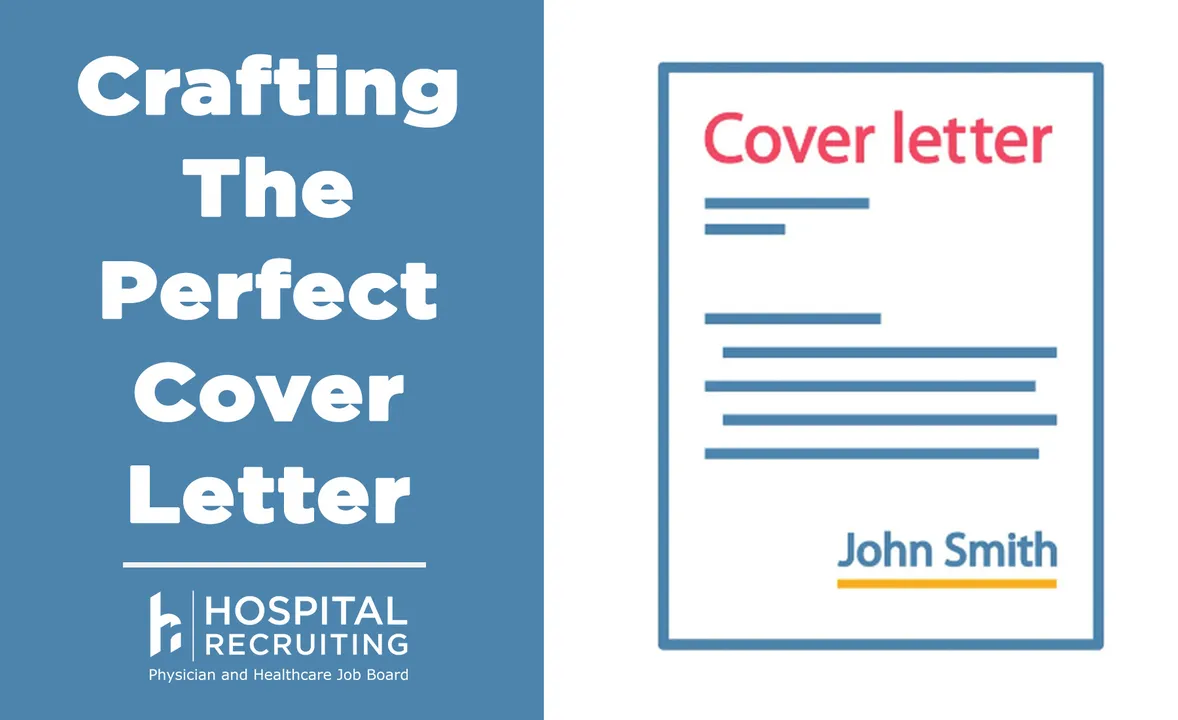
A standout cover letter is essential for healthcare professionals aiming to make an impression in a competitive job market. It is important to personalize each letter, use measurable achievements to back up your claims, and demonstrate enthusiasm for the role. Job seekers should also try using a tone that reflects both professionalism and authenticity. "Your cover letter should tell a story—how your experiences, skills, and values align with the employer's mission and needs."
Key Takeaways
- Tailor the cover letter to each role
- Highlight measurable achievements
- Address the needs of the employer directly
- Be both professional and authentic in tone
3. How to Evaluate Benefits Packages
Author: Benjamin Williams, RN
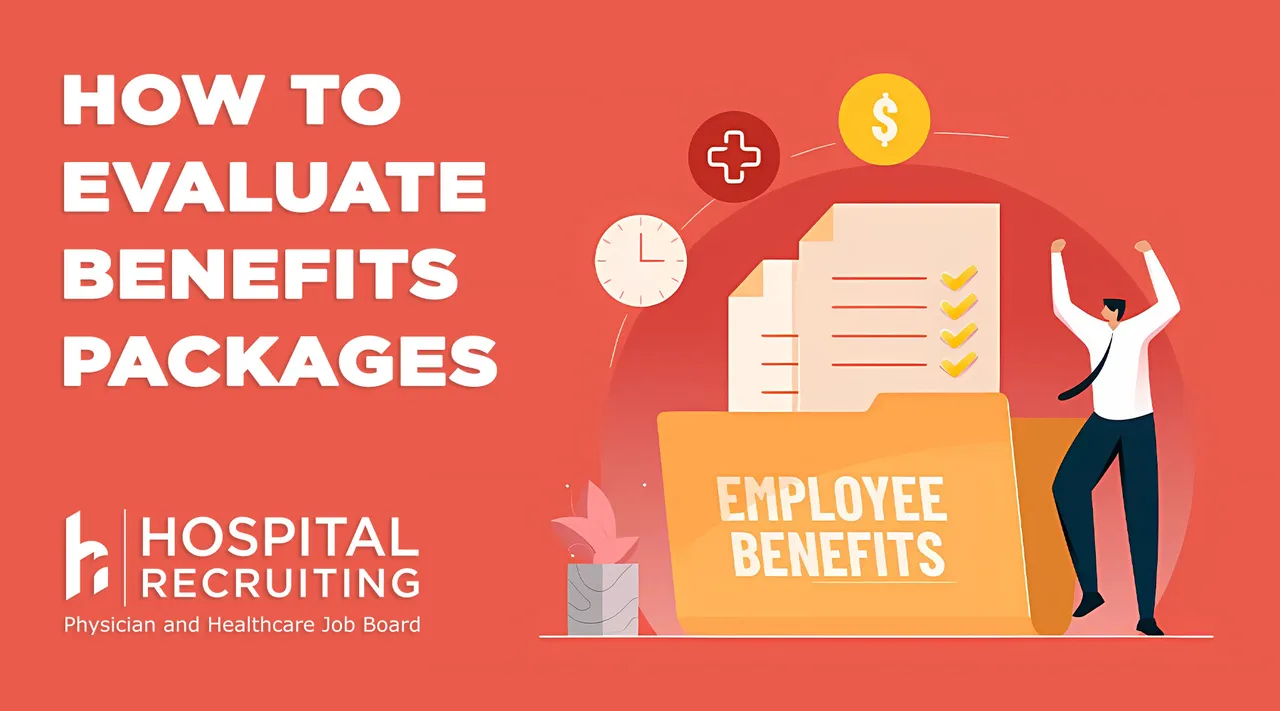
Salary is only one piece of the puzzle when evaluating job offers—benefits can make or break the deal. Job seekers should read into health insurance options, retirement contributions, and continuing education opportunities for the role. "A generous benefits package often signals that an employer values long-term employee satisfaction and well-being." It is also important to identify workplace policies and other perks such as scheduling flexibility and loan repayment assistance.
Key Takeaways
- Compare health insurance plans and retirement contributions
- Evaluate family leave policies and continuing education opportunities
- Look for perks like loan repayment and flexible schedules
4. Crafting Engaging Job Posts for Specialty Job Boards
Author: Nick Martuscelli
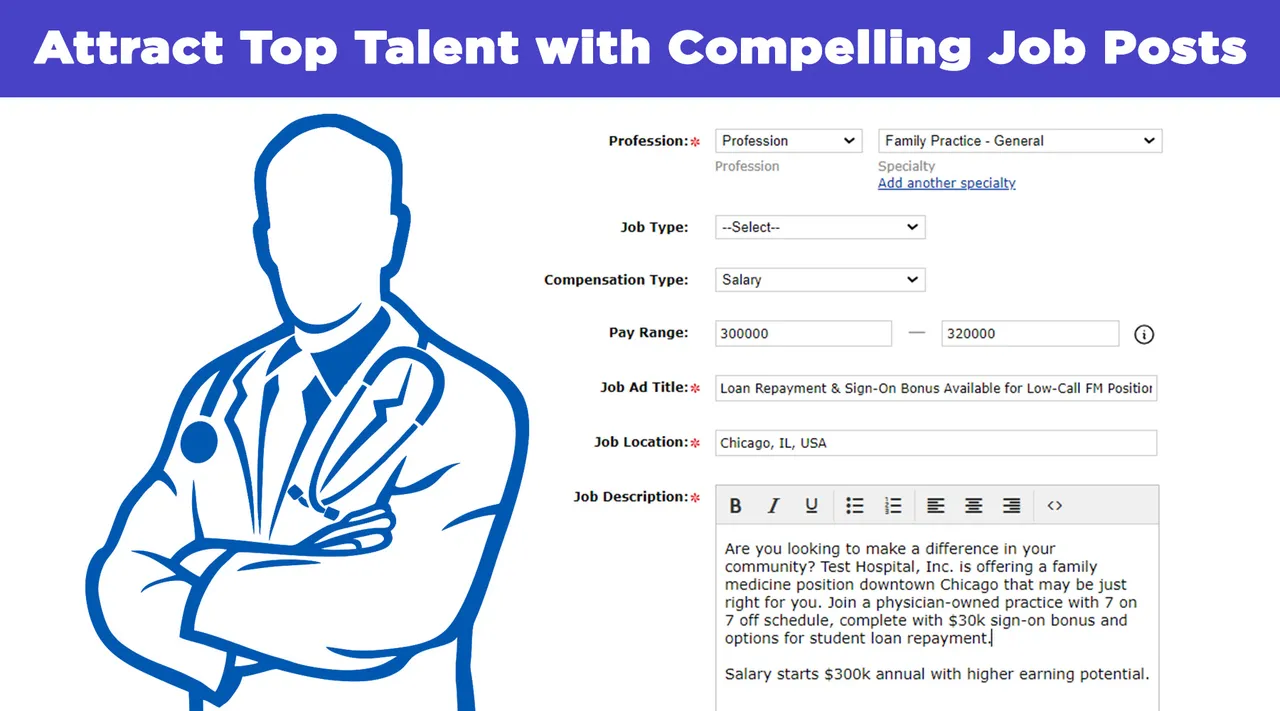
Writing job posts for specialized roles requires a balance of clarity and marketability. "Be transparent about the role's responsibilities, qualifications, and benefits—vagueness is the enemy of good recruitment." Best practices include using concise language, incorporating keywords for search optimization, and showcasing perks like professional growth opportunities and flexible schedules.
Key Takeaways
- Be specific about qualifications and job expectations
- Use concise, engaging language
- Highlight unique perks of the role
- Compelling titles will help you stand out
5. How to Find the Best Emergency Medicine Jobs
Author: David Beran, DO
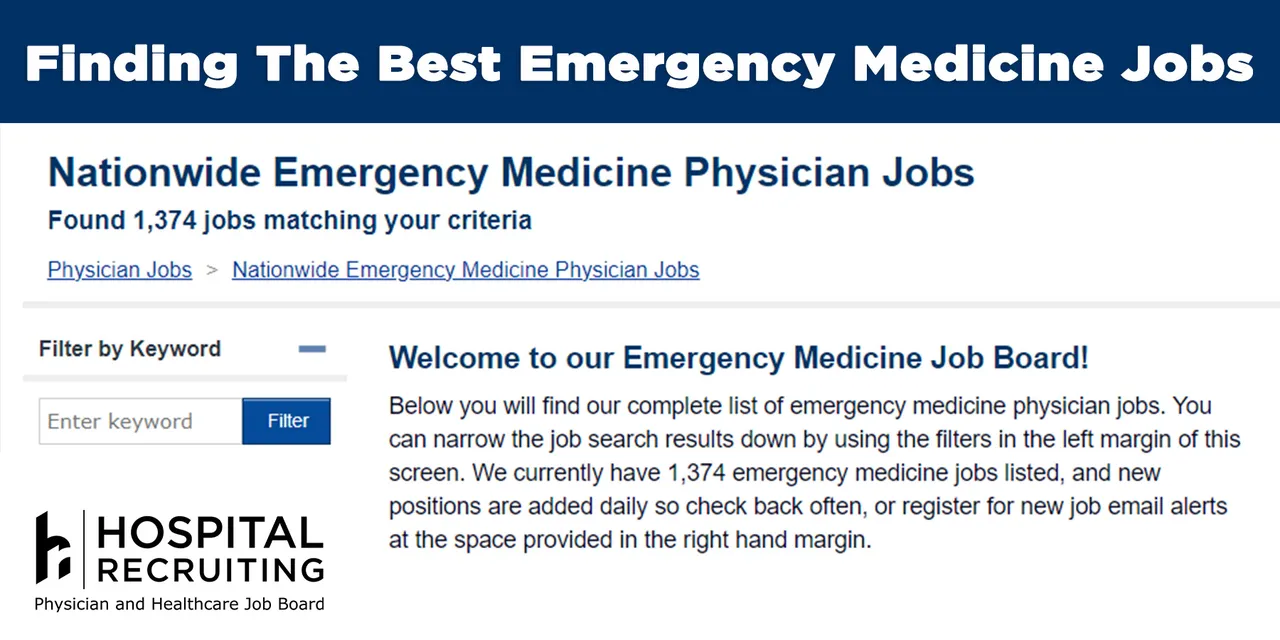
Navigating the job market in emergency medicine can be overwhelming. To find the ideal position, EM physicians should assess potential employers based on staffing levels, team dynamics, and institutional reputation. "Finding the right fit involves balancing professional goals with personal values." It is crucial to also network within the emergency medicine community and leverage job boards effectively to access hidden opportunities.
Key Takeaways
- Prioritize institutions with supportive staffing and manageable workloads
- Seek out positions aligned with personal and professional goals
- Identify the type of community you'd ideally like to work in
- Network within the emergency medicine community for insider tips
6. Preparing for Your NP Interview: Response Strategies to Common Questions
Author: Becky Olimade, MSN
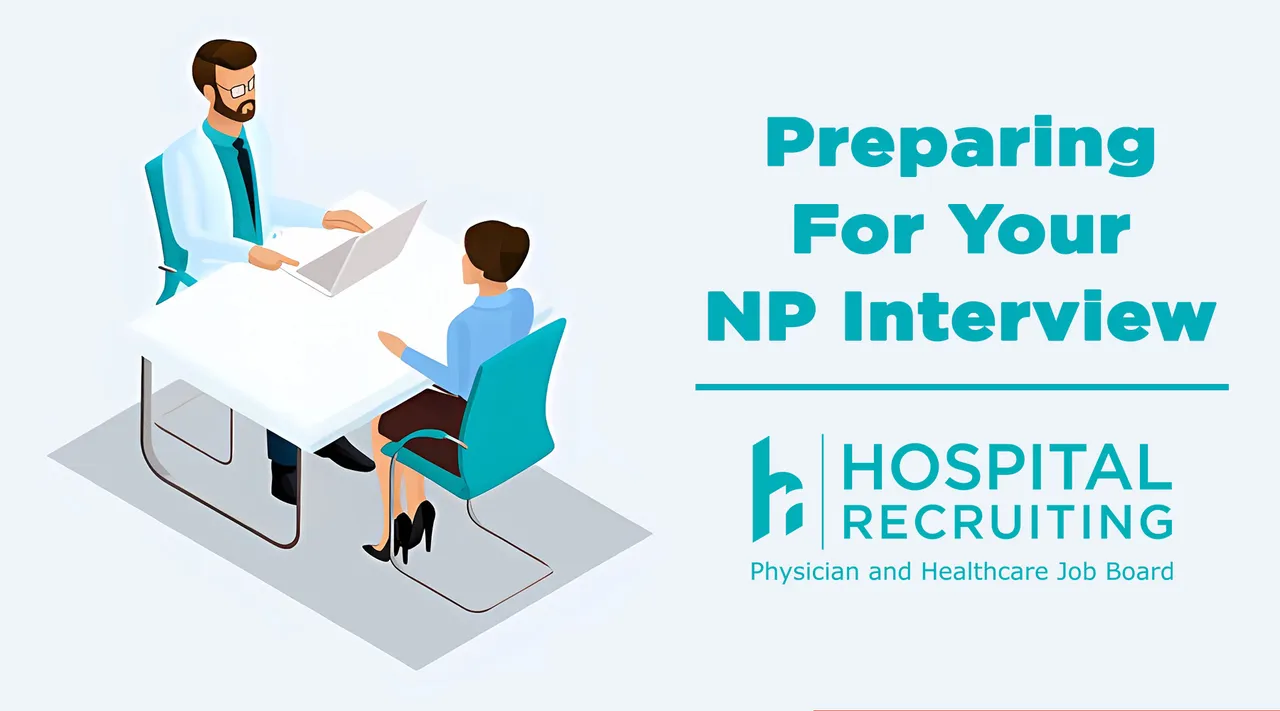
Interviews can be daunting, but with the right preparation, nurse practitioners can make a lasting impression. The STAR method (Situation, Task, Action, Result) is effective in handling behavioral questions to craft concise yet impactful responses. "Preparation breeds confidence—know your story, and know how it aligns with the employer’s needs." Candidates are also encouraged to ask thoughtful questions about team culture and organizational priorities to demonstrate genuine interest in the role.
Key Takeaways
- Use the STAR method (Situation, Task, Action, Result) for behavioral questions
- Practice answers to common interview questions
- Highlight real-world experience in your responses
- Prepare thoughtful questions to ask the interviewer
7. How to Succeed with Healthcare Job Boards
Author: Blake Conner
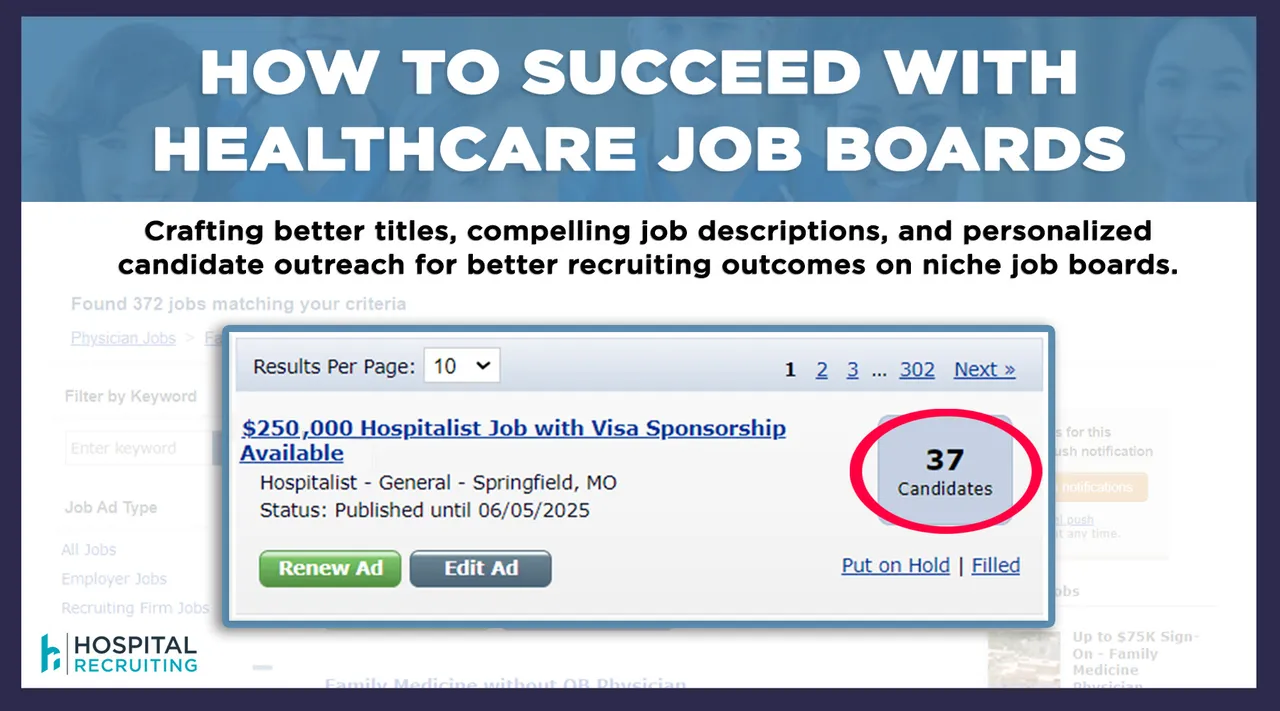
Healthcare job boards are a powerful resource for both job seekers and employers, but success requires a strategic approach. Optimizing your job posts with relevant keywords, compelling and unique titles, and clear descriptions will paint a better picture to job seekers and make your ads more appealing. "Job boards are more than a listing service—they’re a networking tool when used correctly." For highly specialized fields, it is important to leverage niche job boards tailored to specific industries.
Key Takeaways
- Make unique job posts - not copy/pastes
- Leverage better job titles for better results
- Post all your jobs - not just the urgent ones
8. How to Influence the Culture of Your Hospital
Author: Benjamin Williams, RN

A hospital’s culture shapes everything from staff morale to patient outcomes. Strategies like leading by example, fostering open communication, and celebrating team successes can foster a positive workplace environment for healthcare professionals at all levels. "Building a supportive culture starts with small, intentional actions that prioritize collaboration and respect." Mentorship programs and professional development opportunities offered by the facility can also cultivate a positive workplace culture.
Key Takeaways
- Know the change you want to see, and be it
- Lead by example and foster open communication
- Celebrate team achievements to boost morale
- Invest in professional development and mentorship programs
9. Benefits and Important Considerations of Telepsychiatry
Author: Amber Grob, PMHNP
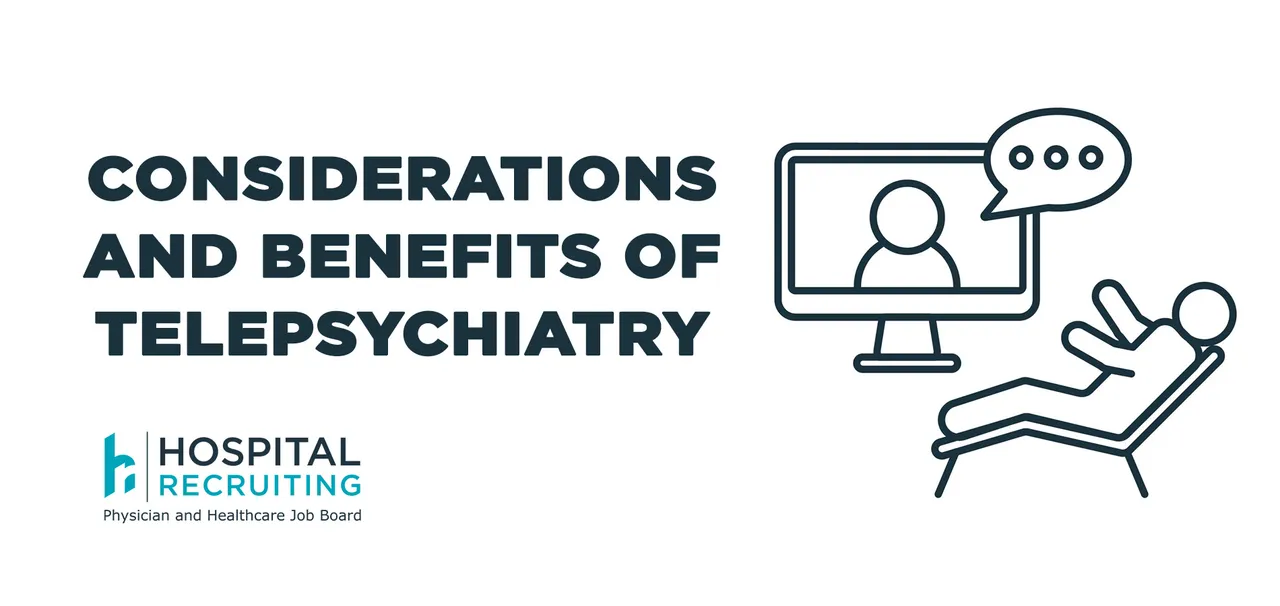
Telepsychiatry is revolutionizing mental healthcare by offering increased accessibility and flexibility. Being a provider practicing virtually has its advantages, such as expanding care to underserved populations and providing more work-life balance. However, it also presents a unique set of challenges like adhering to licensing requirements and ensuring your remote setup is secure. "Telepsychiatry is not just a convenience; it’s a necessity in today’s healthcare landscape."
Key Takeaways
- Improves access to care, especially in rural areas
- Offers very flexible work-life balance
- It can be a challenge understanding interstate licensing requirements
- Maintaining a stable technology setup is crucial
10. Benefits Healthcare Employers Can Offer Other Than Higher Pay
Author: Nick Martuscelli
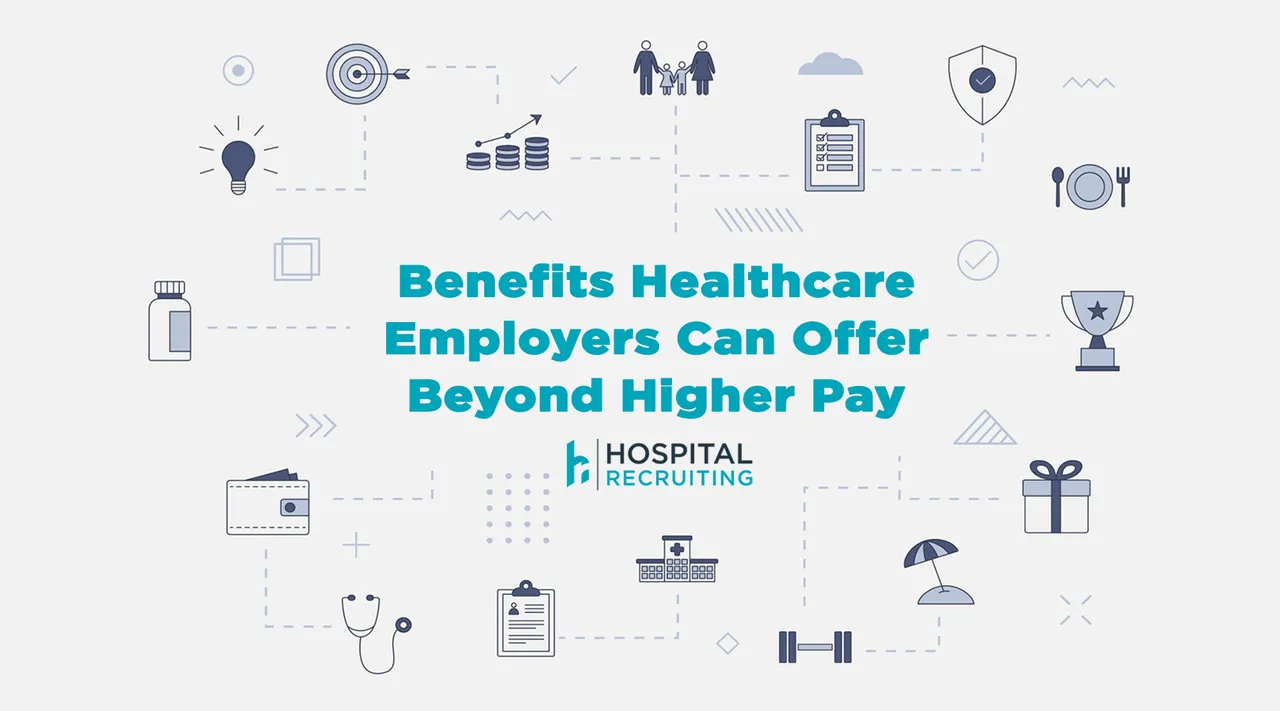
In a competitive labor market, employers must think beyond salary to attract top talent. Innovative benefits like health insurance, relocation assistance, wellness programs, and professional development opportunities can make your jobs stand out to qualified providers. "Offering creative benefits not only boosts recruitment but also strengthens employee loyalty." From childcare support to paid leave, a good benefits package is crucial to your recruitment efforts.
Key Takeaways
- Provide flexible scheduling and remote work options
- Support professional growth with training programs
- Offer wellness benefits like gym memberships and mental health resources
- Healthcare, dental, and vision insurance can be big incentives
Looking Ahead
Thanks for reading! We look forward to providing additional career resources for recruiters and healthcare professionals alike moving into the new year and for years to come. For further reading, visit our blog homepage.
Related Posts
